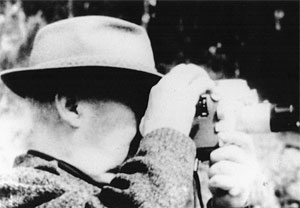 |
||||||
|
HI RES PRESS PHOTOS
ALL PRESS
SF Chronicle Datebook, March, 2024 Local News Matters, March 2024 Local News Matters, November, 2022 The New York Times, March, 2022 San Francisco Chronicle, June 2012 La vida nos estremece October 2011.pdf The Village Voice, October 2010 This Week in New York blog, October 2010 Tribeca Film Institute blog, October 2010 Senses of Cinema, Issue 53, January 2010 San Francisco Chronicle, October 2009 San Francisco Bay Guardian, November 2005 San Francisco Chronicle, November 2005 San Francisco Weekly, November 2005 San Francisco Examiner, October 2005 Scene 4 Magazine, October 2005 San Francisco Bay Guardian, March 2005 Contra Costa Times, April 2004 San Francisco Bay Guardian, November 2002 Vogues Hommes International, Spring/Summer 2002 (pdf) Miami New Times Review & Interview 2001 San Francisco Chronicle Review, 2001 San Francisco Examiner Review, 2001 San Francisco Bay Guardian Review, 2001 San Francisco Chronicle Profile, 2001 Movie Magazine International Review, 2001 The Stranger (Seattle) Review, 2001 San Francisco Weekly cover story, 2000 New York Times Profile, August 2000
"The Filmmaker" By Cassandra Braun "Human Remains," which features old footage of modern history's most notorious dictators -- including Hitler and Stalin -- doing banal, everyday tasks has been in regular circulation on the Independent Film Channel. And his most recent work, a warmhearted ode to fatherhood titled "I Used to Be a Filmmaker," will air on Cinemax on Father's Day. Still, Rosenblatt isn't exactly a marquee name. When you create edgy films that are shorter than the average TV sitcom, you're not likely to make People or Variety. But then, making commercially viable, feature-length films was never his aim. Rosenblatt trained as a psychologist, falling into filmmaking only when he took a Super-8 film production class on a whim. Later, attending the MFA film program at San Francisco State, it became clear to the Brooklyn native that filmmaking was a calling that satisfied a deep need for expression. "I just fell in love with it," says Rosenblatt. "I really made a commitment that regardless of what I did, I would continue to make films." As it turned out, the short film format best suited his experimental style and intense themes. "There are some writers who just write short stories; not all writers write novels. So it's kind of similar in a sense." As a result, his movies -- like "The Smell of Burning Ants," which looks at male socialization and boyhood cruelty -- explore social and emotional issues without the standard character study or story arc of feature films. And that means finding an audience is a challenge. "I want as many people to see my work as possible, but I'm not willing to dumb down the work just so that large numbers see it," he says. Rosenblatt hasn't ruled out a feature-length film project in the future, although it's not likely to be anything close to a Hollywood blockbuster. And there's always the funding issue. Aside from a smattering of grant money and the occasional sale of a film to a cable outlet, Rosenblatt doesn't make a living with his movies. Film may be his art, but teaching is his bread-and-butter. As long as he's been making movies, he has taught the craft at local universities including S.F. State, Stanford and currently, the San Francisco Art Institute. Filmmaking must be crammed into weekends, school breaks or spare time not already devoted to his 3-year-old daughter, Ella. Still, Rosenblatt has no intention of quitting. "I think art is one of the greatest things about being human. To me, that's one of the reasons to live." |
||
